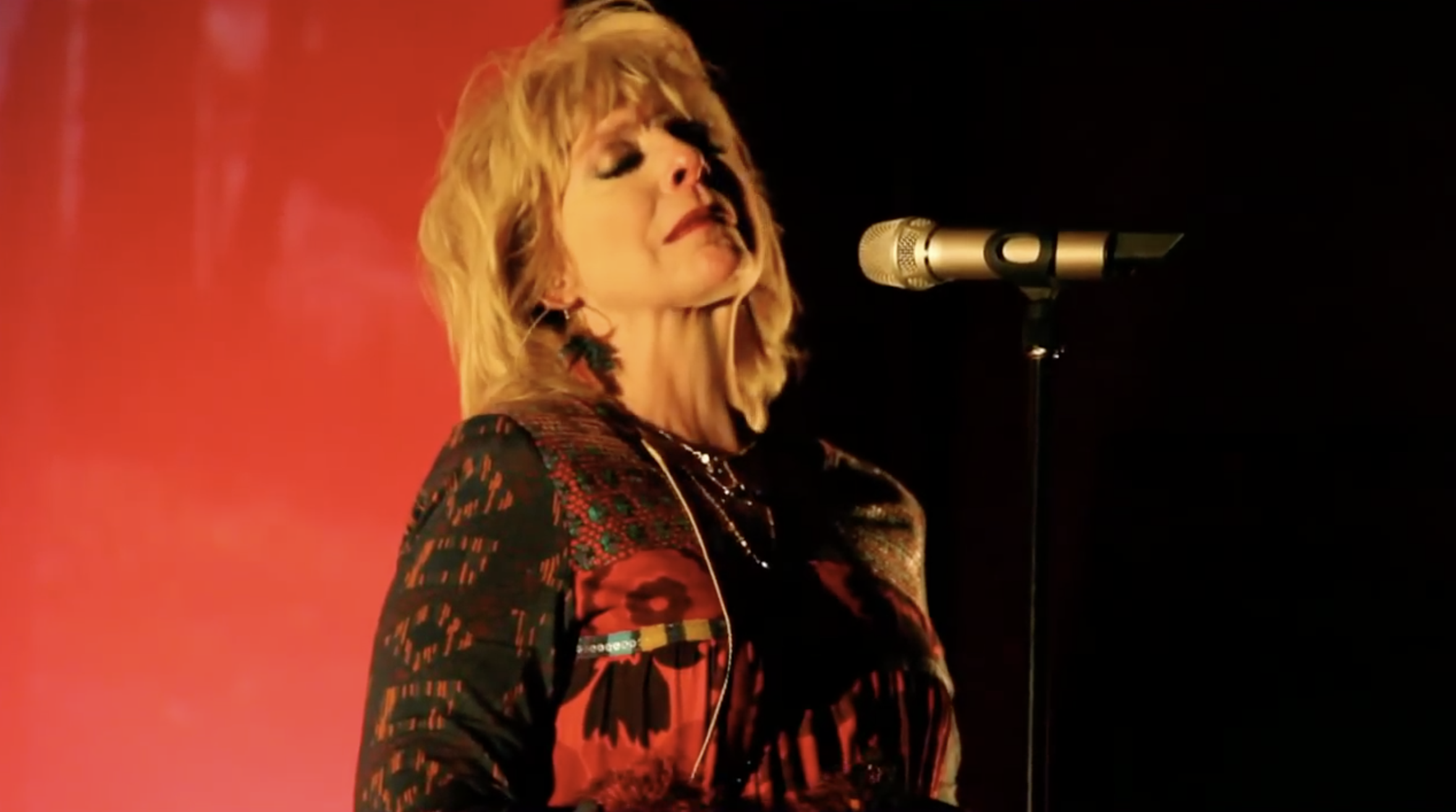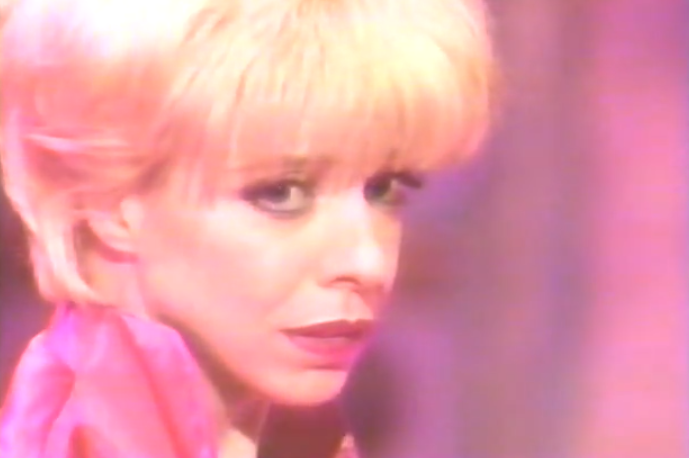
DREAM OPERATOR
a tribute to julee cruise
~ by stephanie crawford ~
Secret stars are a special breed. They seem to slip inside the heart and mind only in especially tumultuous or vulnerable or life-changing times. Their fame, no matter the amount, steadily smolders over years, instead of the popping, turbulent flame of the Stars. Their impact tends to be emotional, comforting, constant, personal. They can't be outgrown, not really, but they'll wait resolutely for years to be rediscovered for the moment the heart needs them again.
Julee Cruise was, and remains, forever, a secret star. Her singular talent, look and energy rocketed her past being "just another performer" but also kept her from the trappings of the capital-S Stars who have names that are friendlier to the tips of tongues and trivia questions.
This can often earn the secret stars the short end of the stick, unwittingly adding them to "remember when?" and "do you know the name attached to this face?" pieces while they're actively writing, performing, touring but otherwise enjoying their personal lives and not trying to court attention from strangers outside of their shows and releases.
Cruise, her songs, and her performances will endure not only because she was so talented, prolific, or that she was a little bit unusual — a wide-eyed, entrancing waif that could flit between or straight out meld mesmerization and pure dynamic energy — but because she seemed tethered to an aura of mystery and unlimited possibility.
To hear her is to be temporarily possessed. Her music allows the listener to lose all sense of time, place and responsibility. Cruise created pure, great music, but she also created an atmosphere so effective that it might as well have been a literal vehicle that'd speed you away from loneliness while still kind of reveling in it.
Born in Creston, Iowa (which to this day has a population well under 10,000) at the tail-end of 1956, a born performer born to non-performers, Cruise made her way to New York City as soon as she earned her bachelor's degree from Drake University.
Angelo Badalamenti, who was her musical director, brought Cruise to David Lynch with the idea that should could assist in finding an ethereal dreamgirl singer for his next film. Badalamenti didn't initially think of Cruise for the soft vocals of his and Lynch's composition "Mysteries Of Love," considering her a "belter," but she seemed to stick and, believing in his fellow French horn-playing friend Julee, Badalamenti soon made sure Lynch believed in her as well.
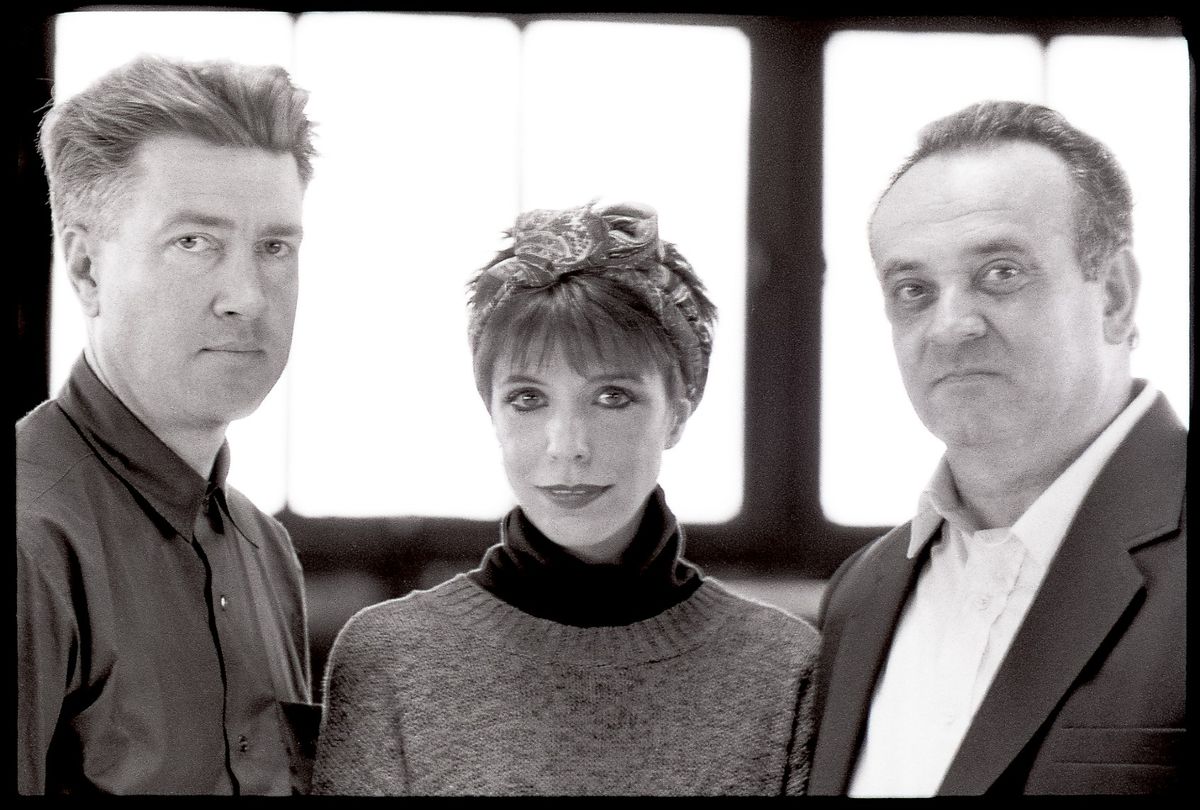
"[Badalamenti] liked the way I sang," Cruise told The New York Times in 2003, "and later called me to say he was doing the music for this weird film called Blue Velvet with this weird director who had made a movie called Eraserhead. And I said, 'That's David Lynch.' Angelo wanted me to find a singer to sing on the soundtrack. And that singer turned out to be me. Before I knew it, Warner Brothers was asking for a whole album."
Lynch found in Cruise a trusted, flexible, creative collaborator, though she referred to him as a "big brother." Following Blue Velvet, the trio went on to work on Industrial Symphony No. 1: The Dream of the Broken Hearted, a twice-performed play based on Lynch's artwork that starred Cruise, Nicolas Cage, Laura Dern and Michael J. Anderson.
Cruise would ultimately record two full-length albums with Lynch and Badalamenti: 1989's Floating into the Night and 1993's The Voice of Love. These albums (especially Floating) and her appearances in Blue Velvet and throughout every iteration of Twin Peaks cemented her marquee image as a fragile torch singer who seemed to be visiting earth for only one enchanted, neon-coated night. Her tones, flowing more like honey than being perceptively sung, float the listener seamlessly from a mellow night out to a savage bar fight within mere moments. The songs born to be put on romantic mix tapes, mouthed lyrics to the boy you love, the background music to visions and nights crying into a pillow. The impact these songs had on pop culture was huge, and they shaped the sound she'd be best known for for the rest of her life.
When in ethereal mode, her voice often seemed personified in the "good girl" characters drawn to the dark side, Sandy Williams in Blue Velvet or Donna Haywood in Fire Walk With Me. Beautiful, timid and so sheltered that they couldn't help but be as attracted as they were repelled by the dark, ever-fattening underbelly of their quiet little towns.
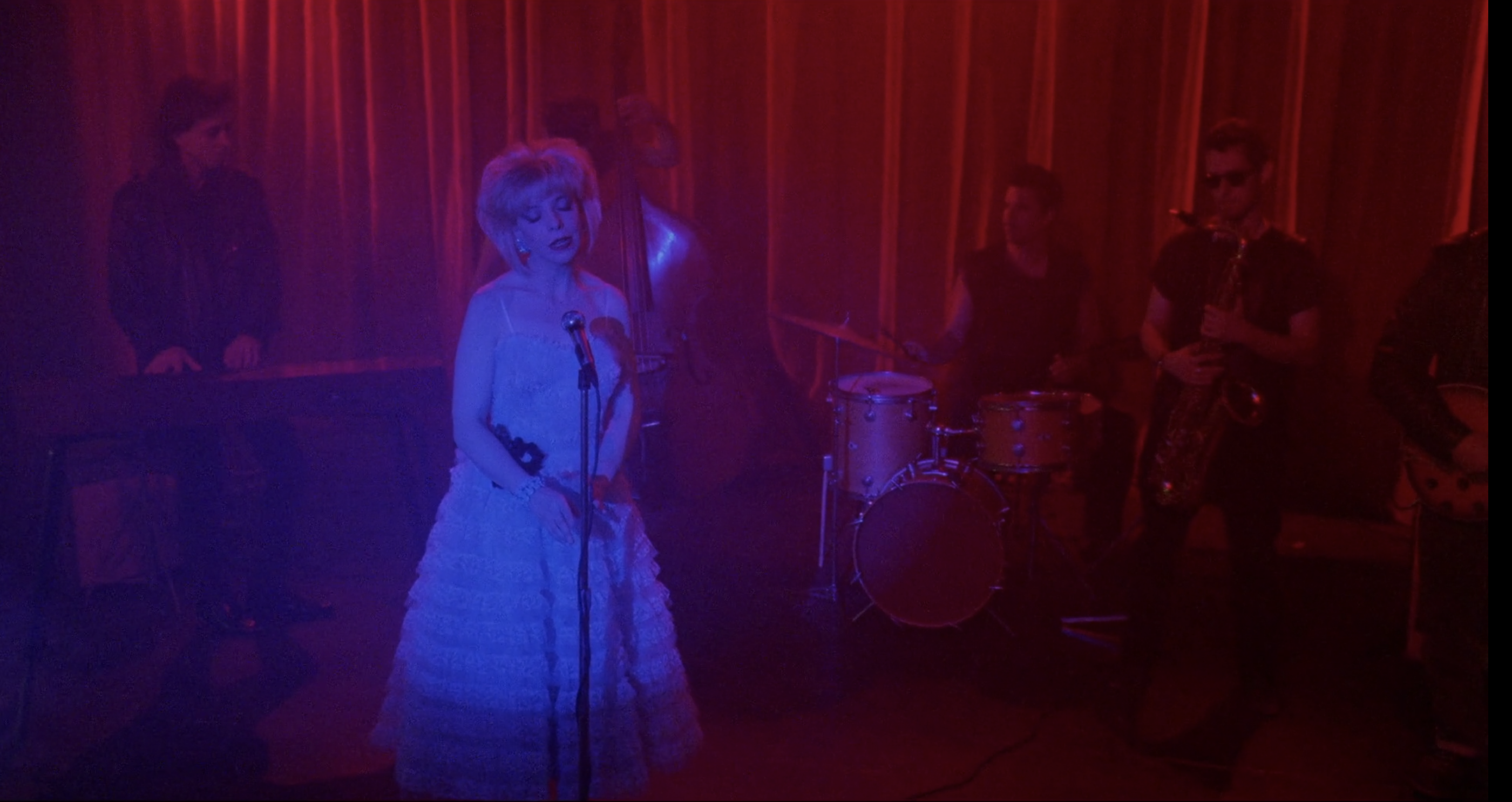
Most importantly, though, Cruise's chanteuse was the angel Laura Palmer so desperately needed on her shoulder. In the infamous bar scene in Fire Walk With Me, Cruise looks doll-like in a white dress straight out of a 60's prom. Bathed in sapphire light singing "Questions In A World Of Blue," she sees through Palmer's dark secrets without ever looking at her. The gentle song is the gateway between the surface normalcy and naked debauchery Palmer straddled, a doomed imbalance that stolen innocence and abuse shoved her onto. Cruise's voice and lyrics understood, and they offered a companionship so compassionate and pure that it instantly broke through all defenses.
When all the world
seemed so right
How, can love die?
Was it me?
Was it you?
Questions in a world of blue
When did the day
with all its light
turn into night?
When all the world
seemed to sing
Why, why did you go?
Kindness does not mean lying about happy endings. Lynch and Cruise understand that her performance in this scene isn't meant to be a life raft; this isn't the moment where the misled teenage girl wipes away her tears and decides to change her life. It's a gift of benediction before death.
There's a kind of fragility that's the most underrated form of strength. On-screen, Cruise was the embodiment of it, someone who cohabitated with and understood bone-deep pain too well but still barreled ahead and joked alongside it. There are heartbreaking moments in her Twin Peaks performances where she sometimes shrugs into herself, her body language actively conveying an apology for her open vulnerability, which only makes it that much more devastating. She was an actress on that show as much as anyone on the call sheet, able to fill her luminous eyes with tears to the point that she’d angle her face up to the heavens to keep them from spilling out for as long as possible.
Cruise was insightful, imaginative and tough-as-hell enough to make such tender performances escape the narrow bounds of television and even film fandom to become a sensitive touchstone in a pop-cultural landscape, a landscape that only occasionally knows loyalty. Her sincerity made her instantly recognizable while never entertaining a moment of a gimmick stage.
Like most artists whose biggest mainstream hits don't fully encompass the totality of their work, Cruise gave off a quiet, mysterious quality that belied a strong sense of humor, a woman who started flying at age 16, and a strength that kept her consistently performing and writing even while she battled lupus. As she once told Pitchfork, "I came out of the womb with my fists." Still, knowing her own strength and gumption, Cruise inherently knew how to transform pain into art so as to be understood by the healthy and the loved while, at the very same time, being a cipher that's immediately unlocked by the lovelorn and the suffering.
It wasn't all artfully tear-stained handkerchiefs, however. A great showcase of her fun, more irreverent side was her work with the B-52s, subbing in on tours for Cindy Wilson when needed. The clips available online show a grinning, effervescent performer whose voice and performance fit in perfectly with the Technicolor cavalcade of pop music from a party band that could sell a song about a lobster to an arena.
When she performed "Falling" on Saturday Night Live in 1990, it seemed hilariously out of place that the host just happened to be Andrew Dice Clay, who introduced her and the low-fi theme to Twin Peaks in the way only The Diceman can. But the chaotic, unexpected nature of where the artist's path takes a person is perfectly crystallized at that moment. We never saw the work with Cruise, we only saw the magic being pulled off flawlessly. That's easy to take for granted.
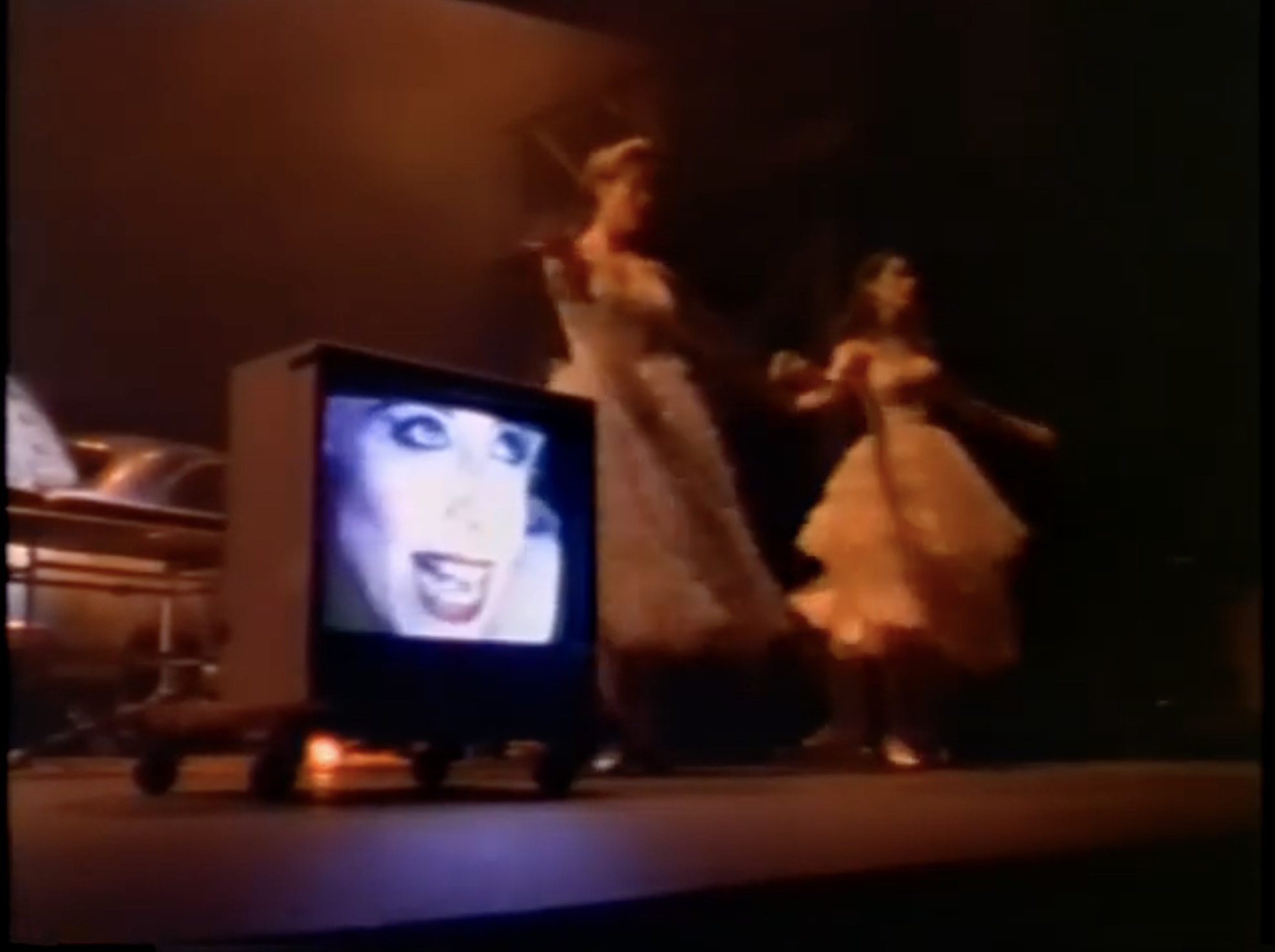
2002 brought along her album The Art of Being A Girl, which gifted us with more of her range without straying too far. Raspy, sexy Bossanova mated with electronica with "wink and you'll miss the kick to your scrotum" feminism woven throughout, it's a lot of unexpected fun. It's also another example of Cruise's innate ability to seem both very of her time and timeless. The production choices on her albums couch them right into the zeitgeists they were produced in, but there's always a playful, subtle toying of convention at play in both Cruise's lyrics and feather-smooth voice that made it hard for anyone foolish enough to try to slap a clear, accurate label on her work.
The best art comes from empathetic weirdos, and if one unlocks themselves enough to let it in, they reap the reward of never being truly, completely alone for the rest of their life. Lynch was meant to connect with Cruise for this reason. They barely saw what was expected of them as talented creative types, instead only seeing the messages they thought important to share. Their working relationship had its ups and downs (he was demoted from her "big brother" to an "emperor" she refused to work with again when her performance for Twin Peaks: The Return was largely relegated to playing over the end credits of episode 17; thankfully, she did end up softening toward him.)
For her entire life, despite chronic illness, Julee Cruise remained passionate and engaged in the world. In 2011, she released her last album, My Secret Life. Produced by DJ Dmitry of Deee-lite fame, it's clear she was as interested in experimentation as she ever was. Though most often described as "angelic," Cruise was all about layers. From sexy to cynical to hopelessly romantic songs, she was a much more interesting artist than she ever really got credit for.
When an artist — a person's — impact is so inextricably welded to the darker corners of emotion and loss, their death cuts at a different angle. It's an intoxication immediately soured. A heart almost cartoonishly broken. The loss of Julee Cruise deeply saddened me: that wasn't a surprise. What I didn't expect was to feel a constant seepage from my heart for a woman I never got lucky enough to meet. She was flesh and blood, she was funny, she was complicated, she loved dogs, and she quietly made the world a much more beautiful and interesting place. I hope she left us feeling in control, feeling free, and really feeling how widely she's loved.
"What a nice surprise life takes you on."
- Julee Cruise, 2017, Los Angeles Times.
~ JULY 21, 2022 ~
